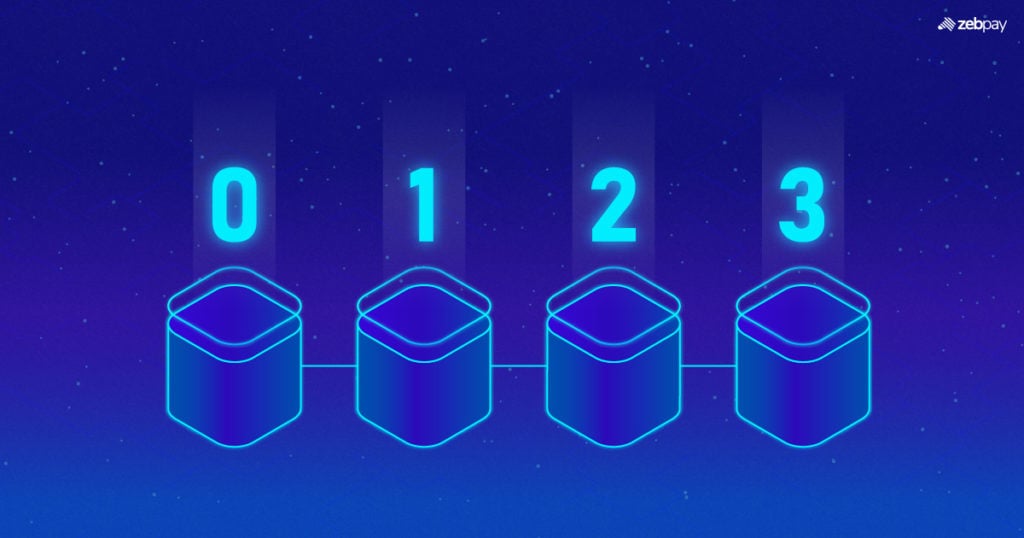What Applications Use Blockchain? : 2023 Guide
Blockchain technology has revolutionized various industries, offering secure and transparent solutions to complex problems.
Created as the underlying technology for cryptocurrencies like Bitcoin, blockchain has evolved to have numerous applications beyond digital currencies.
In this article, we will explore the top applications of blockchain technology, including financial institutions, real estate, healthcare, supply chain management, and more.
Also read: How to Buy Crypto with Zelle?

Financial Institutions: Transforming the Banking Industry
Financial institutions have been quick to adopt blockchain technology due to its ability to streamline processes, reduce costs, and increase security.
Additionally, one of the key applications of blockchain in the financial sector is international payments.
Traditional money transfer services are often slow and expensive, especially for cross-border transactions. Blockchain-based payment systems enable faster and more cost-effective transfers by eliminating intermediaries and automating the process.
This has led to the emergence of decentralized cryptocurrency exchanges, offering users greater control and security over their assets.
Lending is another area where blockchain technology is making significant strides. With the use of smart contracts, lenders can execute collateralized loans more efficiently.
Smart contracts automatically trigger events such as service payments, margin calls, and loan repayments, reducing the need for manual processing and offering borrowers better rates.
Insurance companies are also leveraging blockchain technology to improve transparency and streamline claims processing.
Using smart contracts on the blockchain, insurance providers can record and verify claims, reducing fraudulent claims and speeding up payment disbursement to claimants. This ensures a more efficient and secure insurance process for both customers and providers.
Also read: Crypto Lender Convicted for False Licensing Claims in Australia
Real Estate: Revolutionizing Property Transactions
Real estate transactions are often complex and time-consuming, involving extensive paperwork and multiple intermediaries.
Blockchain technology has the potential to transform this industry by providing a more secure and efficient means of verifying and transferring ownership.
By recording real estate transactions on the blockchain, the process becomes more transparent, reduces paperwork, and saves costs.
Additionally, blockchain can be used to tokenize real estate assets, allowing for fractional ownership and increased liquidity in the market.
Healthcare: Enhancing Data Integrity and Patient Care


In the healthcare industry, maintaining data integrity and ensuring patient privacy is of utmost importance.
Blockchain technology offers a secure and decentralized solution for storing and sharing electronic health records (EHRs).
By using a blockchain-based system, healthcare providers can securely manage and share patient records, ensuring that the data is accurate and tamper-proof.
This enables healthcare professionals to access up-to-date information, leading to improved patient care and better coordination among healthcare providers.
Supply Chain Management: Improving Transparency and Efficiency
Blockchain’s transparent and immutable ledger makes it well-suited for supply chain management. By using blockchain technology, companies can track and verify goods as they move through the supply chain, ensuring transparency and reducing the risk of fraud.
The use of blockchain provides a single source of truth for all stakeholders involved, enabling real-time tracking, inventory management, and authentication of products.
This improves efficiency, reduces costs, and enhances trust among suppliers, manufacturers, and consumers.
Intellectual Property: Protecting Creators’ Rights
Blockchain technology has the potential to revolutionize the protection of intellectual property rights. By using blockchain-based solutions, creators can securely store and verify their work, ensuring that they receive proper recognition and compensation.
For example, blockchain can be used to track and manage music and film files distributed over the internet, reducing piracy and ensuring that artists receive fair compensation for their work.
They can also be utilized to automate royalty payments, providing greater transparency and accountability in the creative industry.
Smart Contracts: Enabling Automated and Secure Transactions


Smart contracts are self-executing contracts with the terms of the agreement directly written into code.
These contracts are stored and executed on the blockchain, eliminating the need for intermediaries and ensuring transparency and security.
Furthermore, smart contracts have numerous applications across industries, such as real estate, supply chain management, and financial services.
They enable automated and secure transactions, reducing the need for manual processing and minimizing the risk of fraud.
Cross-Border Payments: Facilitating Fast and Secure Transactions
Blockchain technology has the potential to revolutionize cross-border payments by providing faster and more secure transactions.
Traditional cross-border payments are often slow and expensive, involving multiple intermediaries and complex processes.
By leveraging blockchain technology, financial institutions can facilitate real-time, peer-to-peer transactions, eliminating the need for intermediaries and reducing transaction costs.
This enables individuals and businesses to conduct cross-border transactions more efficiently and securely.
Distributed Ledger Technology: Establishing Trust and Transparency
The core component of blockchain technology is the distributed ledger, which ensures transparency and immutability of data.
By using a distributed ledger, blockchain establishes trust among participants in a network, as every transaction is recorded and verified by multiple nodes.
Additionally, this eliminates the need for a central authority and reduces the risk of fraud or manipulation.
Distributed ledger technology has applications in various industries, including finance, supply chain management, and healthcare, where trust, transparency, and data integrity are crucial.
Single Source of Truth: Ensuring Data Consistency and Security
One of the key advantages of blockchain technology is its ability to provide a single source of truth for data. In traditional systems, data is often stored in multiple databases, leading to inconsistencies and the risk of data breaches.


By using a blockchain-based system, organizations can ensure that all participants have access to the same verified and up-to-date information.
Furthermore, this enhances data consistency, reduces the risk of unauthorized access or tampering, and improves overall data security.
Medical Records: Enhancing Privacy and Accessibility
Blockchain technology can revolutionize the management of medical records, improving privacy and accessibility for patients and healthcare providers.
Furthermore, by storing medical records on a blockchain, patients can have more control over their data and grant access to different healthcare providers as needed.
This eliminates the need for redundant medical tests and ensures that healthcare professionals have access to accurate and up-to-date information.
Additionally, blockchain technology enhances patient privacy by providing secure and encrypted storage of sensitive medical data.
Conclusion
In conclusion, blockchain technology has far-reaching applications across various industries, including financial institutions, real estate, healthcare, supply chain management, and more.
Its ability to provide secure and transparent solutions to complex problems has the potential to revolutionize traditional processes and improve overall efficiency.
With continued advancements and adoption of blockchain technology, we can expect to see further innovation and transformation in these industries and beyond.





